Staying Fit

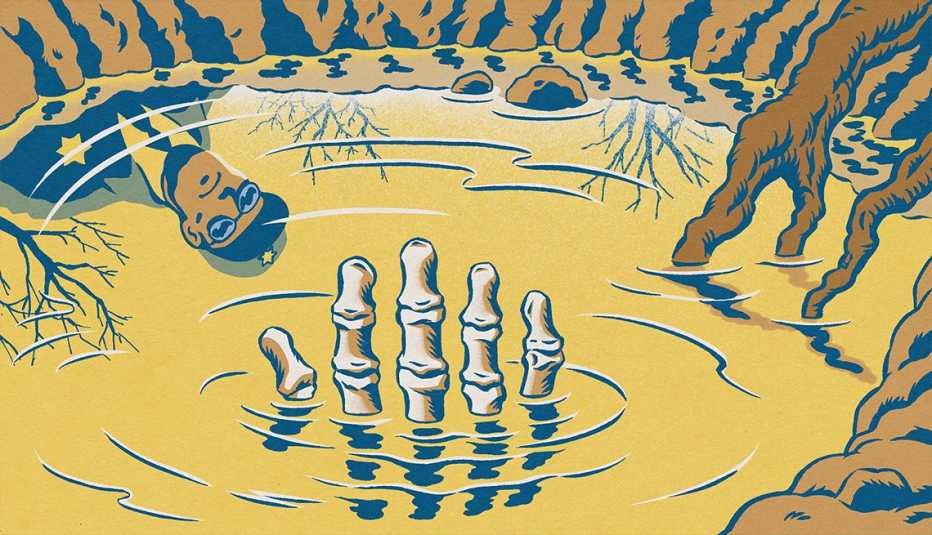
11
Where the Bodies Are Buried
“My name is Nathan Burby,” he told me, holding out what turned out to be a professionally soft, dry, funeral-director hand. I stared at him, astounded.
He was several inches shorter than I, with a rounded chin and dark, warm eyes. His suit was charcoal gray wool, his facial features bland. His smile was cautious—welcoming, but careful not to come off as too jovial in case I was here to discuss putting Aunt Mildred in the ground. Absurdly, it struck me that he looked like a really nice guy.
“Oh my God,” Alan breathed, barely recovering from his own shock. “Do you know who this is?”


AARP Membership— $12 for your first year when you sign up for Automatic Renewal
Get instant access to members-only products and hundreds of discounts, a free second membership, and a subscription to AARP the Magazine.
“I’m Ruddy McCann,” I finally answered Burby, releasing his hand.
He gestured as if he had a staff of workers gathered around him. “How can I help you tonight, Mr. McCann?” “I was looking for the cemetery,” I replied faintly.
“Well, you’ve come to the right place, then.” He smiled pleasantly.
“It’s him! The one with the toupee! That day in the woods! He’s one of the killers,” Alan was babbling shrilly. I closed my eyes once, hard, trying to get him to shut up. Burby was watching me curiously.
“I meant the other one, wasn’t the cemetery, I mean, didn’t it used to be somewhere else?”
“That’s right. We moved here about seven years ago.”
“He must own the place,” Alan speculated, calming down a little.
“Was that so they could build that new factory I noticed? PlasMerc?”
Something like discomfort flitted across Burby’s face, but, smoothly practiced in suppressing his own feelings in order to allow his clients to indulge in theirs, he kept whatever it was under tight control. “Yes, that’s correct.”
“How could you do that, though? I mean, weren’t the bodies buried and everything?”
“We moved everyone,” he explained simply. “Everyone with a family member interred at the old cemetery was compensated, or at least those we could contact. For those with untraceable roots, we’ve established a trust fund, and we have hopes that eventually they’ll come forward.”
“What about you, though? Did you get compensated?”
Burby’s eyes lost some of their softness. “What’s this about, Mr. McCann?”
“I had a family member buried in the old cemetery,” I lied.
“Oh? Who?”
“How much were the families compensated?” I parried.
He regarded me for several long seconds. “In the thousand-dollar range,” he finally stated quietly. “May I inquire who it was you were related to?”
“Alan Lottner.”
No amount of practice could have prevented the wild look from passing through his eyes then. “That’s ... impossible,” he whispered.
I took a step forward and was rewarded when Burby took a fearful step back, tilting his head up to stare at me. “Why do you say that, Nathan? Why’s that impossible?”
“I know the family,” he stuttered. “No one has ever mentioned ...” He gestured toward me.
“I had a whole group of cousins in Wisconsin,” Alan advised me.
“I’m from Wisconsin,” I explained. “Alan had a whole group of us cousins up there. All good runners.” “Runners?” Burby repeated helplessly.
“So is Alan Lottner buried here? Did you move his body from the old cemetery?”
That one took a while for him to process, but when Burby spoke next he had rediscovered his gift for imperturbability. “Actually, no. I don’t know what you’ve been told, but your cousin left town without a word. After several years, he was declared dead, and his ex-wife and daughter had a service for him here. We placed a memorial headstone on the grounds in a very nice area, if you would like to see it.”
“What does he mean, ex-wife?” Alan demanded indignantly. “We weren’t divorced!”
“I’m confused about something. You said ‘ex-wife.’ I don’t remember Alan being divorced.”
“Ah, well, after he disappeared, his wife ...” Burby spread his hands, hating to deliver unpleasant news. “It was a simple case of abandonment.”
“What about Kathy? Does she still live here?” Alan asked.
“Does the family still live here?” I pressed.
“Yes,” Burby answered reluctantly. “They are both living in East Jordan.”
“Where? Ask him where!” Alan implored.
I was more interested in a different subject. “So you sold the cemetery to the factory. That must have made you a lot of money.”
“Actually, no, that’s not right. Burby’s operated under a nonexclusive lease to the city of East Jordan. The city sold the land. Burby’s surrendered lease rights in exchange for the deed to the property here.”
There was something about that last statement that rang false for me, but I wasn’t sure what it was. I pushed in a slightly different direction. “Well that must have saved you a bundle, not having to make those lease payments to the city.”
Burby chuckled, but there was no humor in his eyes. “Hardly. Our lease formerly cost us a dollar a year. This new arrangement subjects us to property taxes.”
“What does this have to do with anything?” Alan asked churlishly.
“May I ask why you are so interested in these matters?” Burby inquired, essentially asking the same thing. Maybe I should just shut up and let the two of them talk to each other.
“I’m just trying to understand. So the factory is on land formerly owned by the city?”
“Yes. Well no, not entirely,” Burby admitted reluctantly. “Most of the parcel was a ranch belonging to a local family. The city land was less than a quarter of the total.”
Far more interesting than his answer was his uneasy expression. In better lighting, I might have seen sweat on his shiny, toupeeless head. “What was the name of that family?”
“I really don’t recall,” he replied uncomfortably. “Mr. McCann, does any of this matter? Shall I show you where Alan Lottner’s memorial is placed?”
“So you got paid to move every body? That must have amounted to a lot of money,” I speculated.
Burby had had it with me. “I don’t see how that’s any of your business.”
“Oh, just wondering if it wouldn’t be a good idea to open a cemetery in Minneapolis,” I joked.
“Wisconsin!” Alan corrected.
“Wisconsin. The funeral business pay pretty well?”
“I’d like you to leave, Mr. McCann.” He made as if to nudge me forward, but someone Burby’s size can’t budge a bar bouncer without help, and I didn’t move. We were now standing almost intimately close, like dancers, and I leaned down to murmur in his ear, the way Alan’s voice sounded to me. “Man doing well like you, must own a second place, maybe on the lake?”
“Please. I’ve answered all your questions.” “What about on the Jordan River?” Burby looked truly puzzled.
“Ruddy ... ,” Alan warned faintly.
“Be nice to own a piece of property on the Jordan River someday, wouldn’t it? Beautiful in the autumn. You ever go up there, take a look at a piece of land on the Jordan, some autumn afternoon?”
Burby’s expression was slack and empty, trying to cope with the implications of what I was asking him. I slapped him on the shoulder and he flinched. I liked that. “Hey, just making conversation. Listen, I’ll come back some other time to check out where Alan’s buried.” I turned to leave.
“Well, no, actually, he’s not buried here. As I explained, it is a memorial.”
“Oh?” I turned back. “Where is he buried, then, Nathan?”
We looked at each other for an open and honest moment before Burby decided he must be reading too much into this whole thing and relaxed. “From what I understand, no trace of him was ever found.”
“Is that so.” I nodded pleasantly and walked out the door.
“I can’t believe you did that!” Alan fretted as I drove away. “Why did you ask him about the Jordan River property, and where I was buried?”
I waited to answer until I had driven out of eyeshot of Burby. “Why not? What did you want me to do?”
“But now he knows we’re suspicious!”
“No, now he knows I’m suspicious. And so what?”
“I don’t know, I just ... you’re just so different than me, I would never confront someone directly like that.”
“You think that was direct? That wasn’t direct. If I had confronted him directly he’d be in the hospital right about now.”
Alan ruminated for a few moments. “There was something strange there, at the end, when you asked him about the land.”
“He was lying. Something about the ranch, I don’t know what it is, but it made him nervous. I’ve seen the same expression on people’s faces when they tell me they don’t know where their car is.”
I realized I was grinning. Whatever doubts had remained were gone now: Alan Lottner had been a real person, he was a real person, and I’d just shaken hands with his killer. I wasn’t crazy.
My smile faded when I thought about Katie. I might not be crazy but I wasn’t exactly without problems. The first woman in a decade to make my pulse race, and I had her father trapped inside my head.
I tried to picture telling Alan that I knew his daughter, and how I knew her, and found myself almost shivering with dread. I could not think of a single reason to talk to him about it. Ever.
The East Jordan Library was still open. I started flipping through back issues of the Charlevoix Courier on the microfiche, irritated that Alan couldn’t remember the date of his appointment to show the property on the Jordan River. “It was the date you died, how could you forget something like that?” I challenged peevishly. A woman at a table within earshot gave me an alarmed look, and I smiled weakly.
“I don’t know, it’s not like me to forget. But it’s erased, I really can’t ... the past few months, I mean, the months before I went out there, are all blurred, like I was drugged. I can’t remember anything.”
“Well, you can bet that when I die, I’ll pay attention,” I grumbled.
Screaming headlines from the winter after Alan vanished caught my eye. 32 die in explosion. “Oh yeah, I remember this,” I muttered.
“I hate this. You read at a different speed than I do. I can’t ... it makes me a little sick,” Alan grunted.
I bristled. “Are you saying I read more slowly than you?”
He didn’t reply.
“Come on,” I pressed, “that’s what you’re implying, right? I’m a big dumb jock who moves his lips while he reads.” The woman at the other table glanced at me again—I was moving my lips while I read.
“I don’t think it matters which one of us reads more slowly,” Alan proclaimed haughtily.
“Ha! So I am faster!”
“You’re so competitive.”
“And you’re such a snob! It really burns you to admit a football player reads faster than you do, doesn’t it?”
When he didn’t answer I turned triumphantly back to the microfiche. “It was a firebomb that killed all those people,” I recalled after a moment, glancing through the story. “An explosion in the basement of a nursing home, and all the residents there died. It was deliberate, and I don’t think they ever found a motive for whoever did it. Just somebody out to kill off a bunch of local old people, plus I think a couple of nurses.”
“Do you think it had something to do with me?” Alan asked.
“Is that some sort of gentle reminder that we’re not here to catch up on old news?”
“I am just trying to understand where the investigation is taking us.”
“Is that what this is, an investigation? Hey, here we are.” I pointed to the story: local man missing.
Alan Lottner, 41, of East Jordan, failed to return home from work on Oct. 11th, according to his wife, Marget. A Realtor, Lottner often works long hours, so she was not alarmed when she went to bed on the 11th and Alan still wasn’t home. “But when I woke up the next morning and he was still gone, he’s never done that before,” she stated. Authorities are asking local residents to be on the lookout for Lottner’s automobile, a green late model Olds 98 Station Wagon, license BA 113 08.
Two photographs accompanied the story, and for the first time I got a look at Alan Lottner. The top photo was obviously from his real estate brochure—coat and tie, a fatuous grin, professionally lit background. Alan’s hair was short and curly, his eyes dark, his teeth even and, I assumed, well flossed.
In the second picture he was standing on some steps, one hand reaching out of frame, probably holding onto his daughter, who had been cropped out of the shot. His pants were creased, his polo shirt pressed, probably underneath it all his boxers were ironed as well. I could see why a couple of ice fishermen might think he dressed funny.
“October eleventh,” I noted for the record.
A week later another story surfaced.
STILL NO SIGN OF LOCAL MAN, MISSING SINCE 11-OCT.
This one was pretty brief, with little to say other than the fact that the local authorities were investigating the possibility of foul play but had no leads.
That was it. Flipping forward through the days on the microfiche eventually brought me to the stories about the nursing home bombing, the worst crime in the history of the area. “I lived here for eighteen years, and when I was killed I got less coverage than a story about some kids spray-painting a trash Dumpster behind Glen’s Market,” Alan groused.
We left the library and headed back to Kalkaska. “But they didn’t know you were killed, Alan,” I pointed out. “They just thought you took off. Lots of guys do stuff like that.”
“I wonder ... I wonder what Marget told them.”
“Told who?”
“The police.”
“What do you mean?”
“Well look, we weren’t getting along very well. Marget was sleeping in the spare bedroom. She’d gotten so cold toward me. We really didn’t have much to say to each other. We’d talked about divorce, you know, like maybe that would be the best thing. If she told the police that, maybe they wouldn’t look very hard for me.”
“That makes sense,” I admitted.
“But I would never leave Kathy. It’s crazy to think I would just get in the Oldsmobile and drive off and leave everything: my business, my clothes, and especially my daughter, just because Marget and I were not getting along. It’s stupid,” he complained bitterly.
I watched the road. It was a dark, moonless night, my headlights carving out a bright tunnel between the ridges of snow that lined both sides of the highway. Down there at the bottom was the snow that first fell in November—it would be the last to melt away.
“You believe me now, don’t you, Ruddy? I’m not a figment of your imagination. Maybe it made sense that you had a bad dream and then got a voice in your head, but not after what we heard tonight. You know something’s not right, here. Burby, you recognized him, and you know he’s lying. And the newspaper. You didn’t imagine that.” Alan sounded plaintive and insecure.
“No. You’re right. I didn’t create you out of my imagination. You lived, you sold real estate, you ironed your pants.”
“What’s that supposed to mean?”
“I’ve just never seen so many creases on a living person. You looked like you could give someone a paper cut.”
Alan lapsed into a moody silence, and a few minutes later went to sleep.
The inside of the Black Bear was even quieter than the East Jordan Library had been. I slid up to the bar, massaging my thighs. You know you’re getting old when you’re sore from just driving your truck. “Hey, Becky,” I called.



























































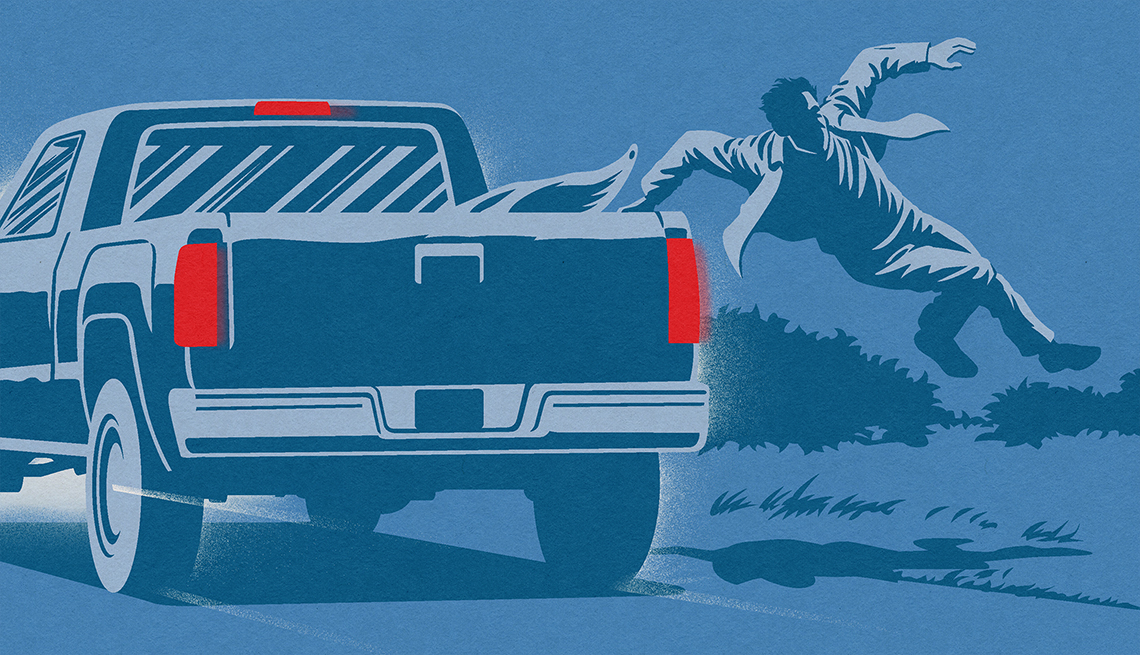

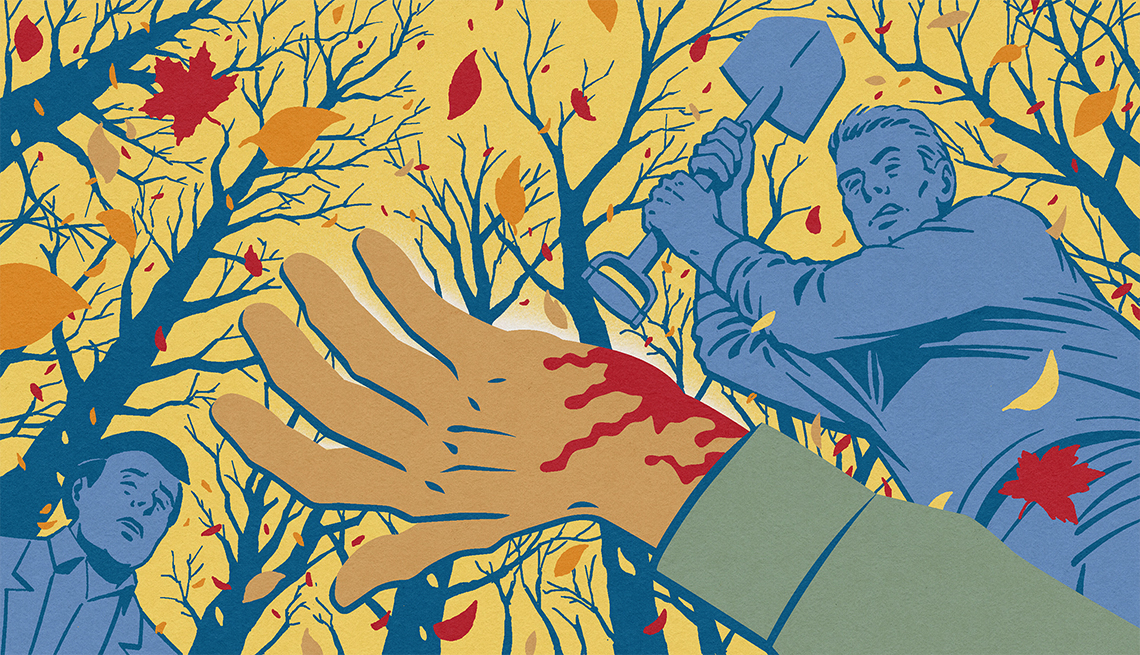
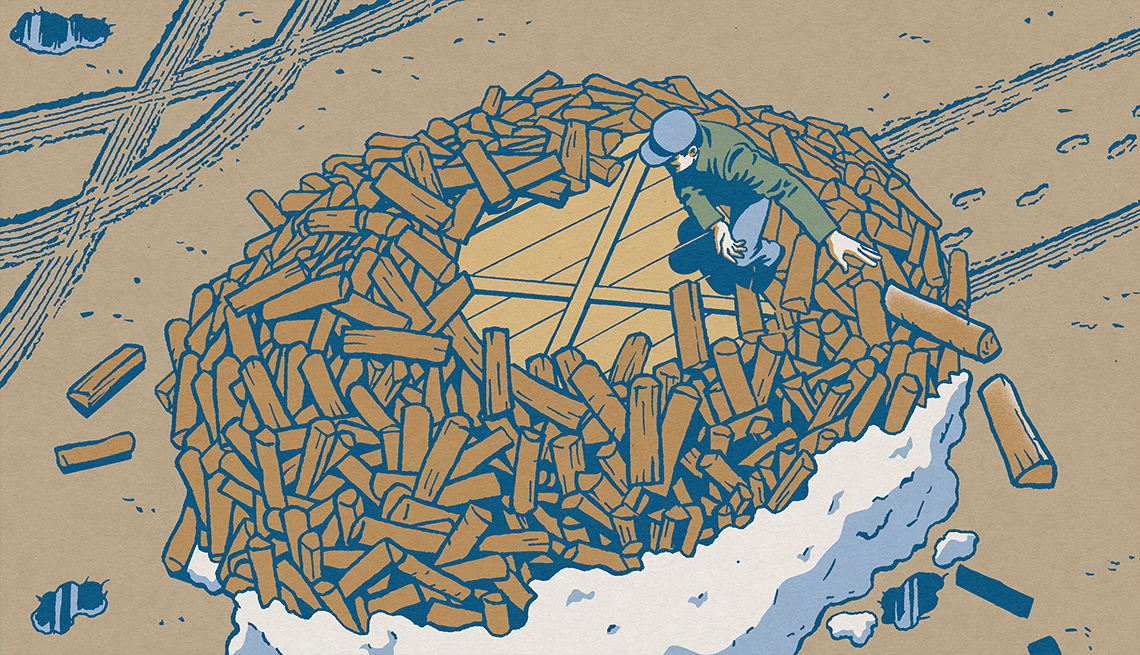
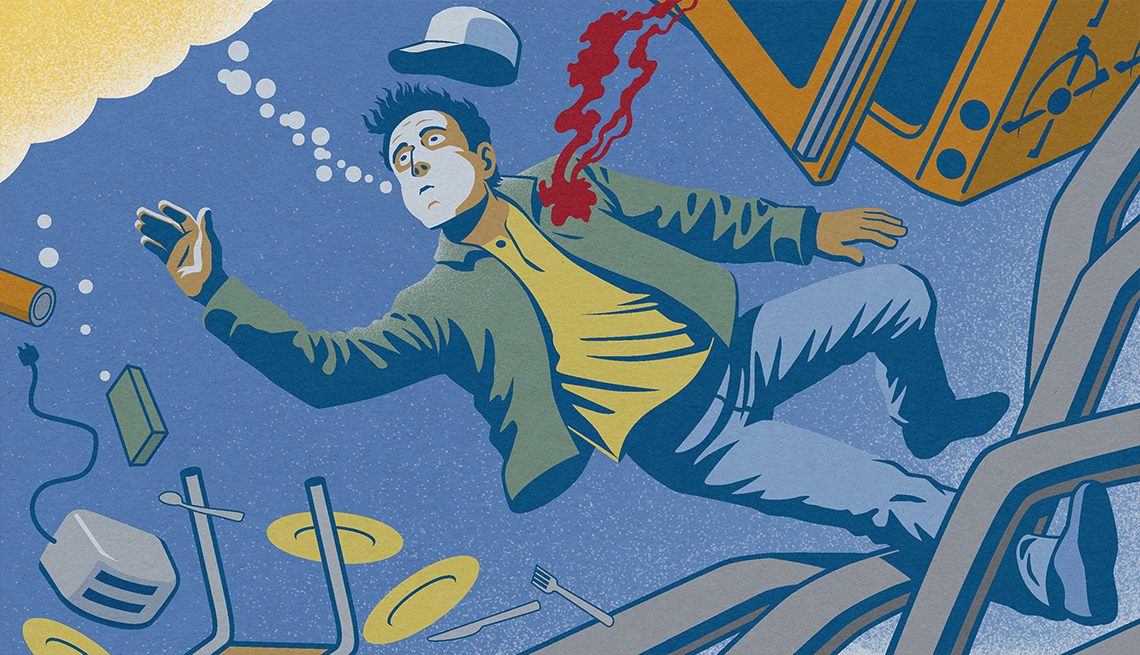
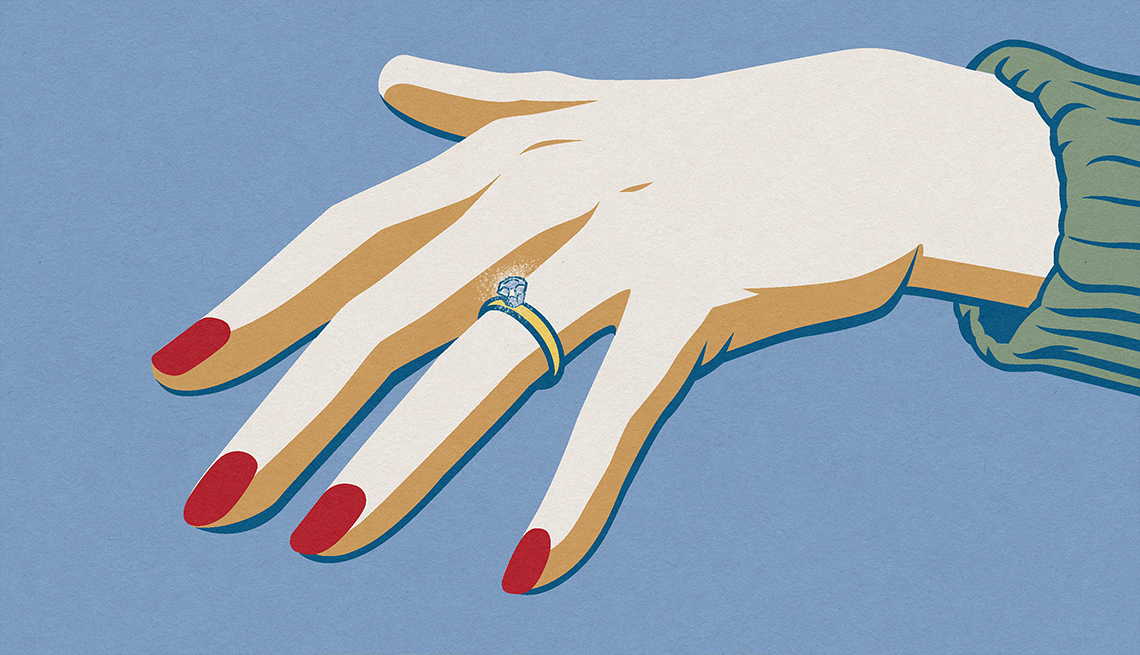

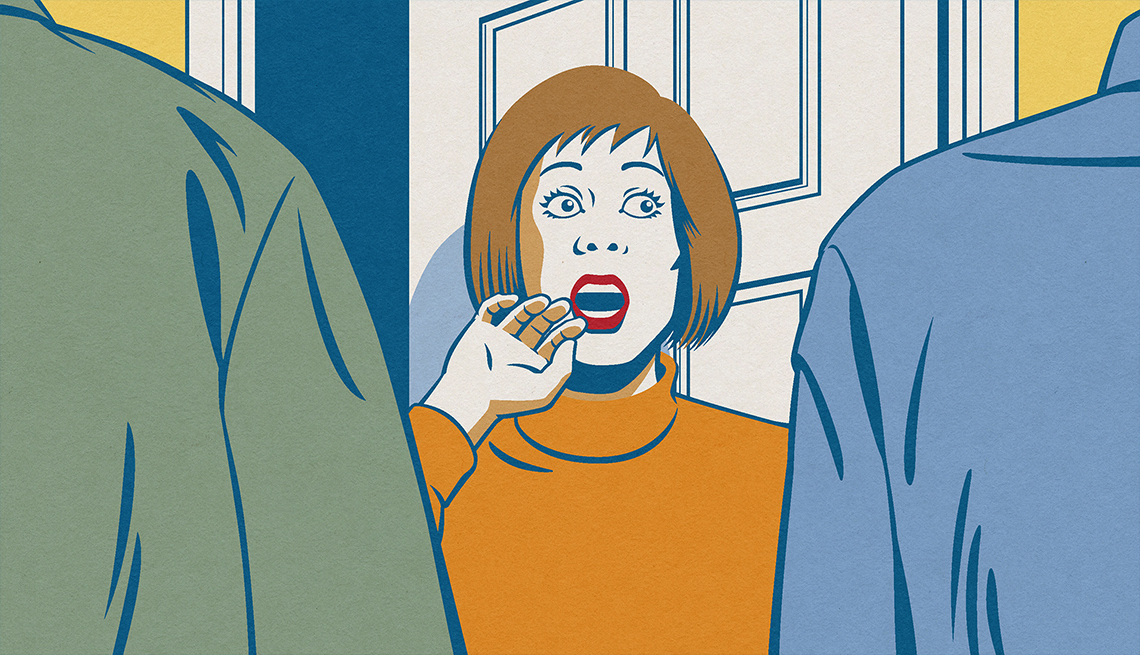
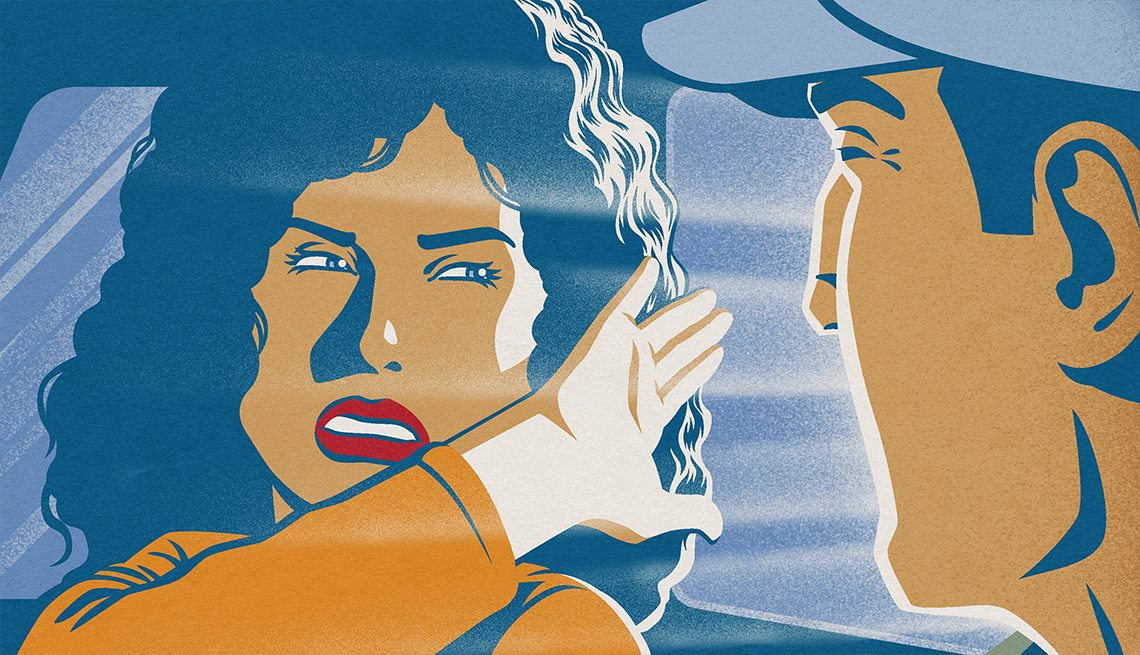
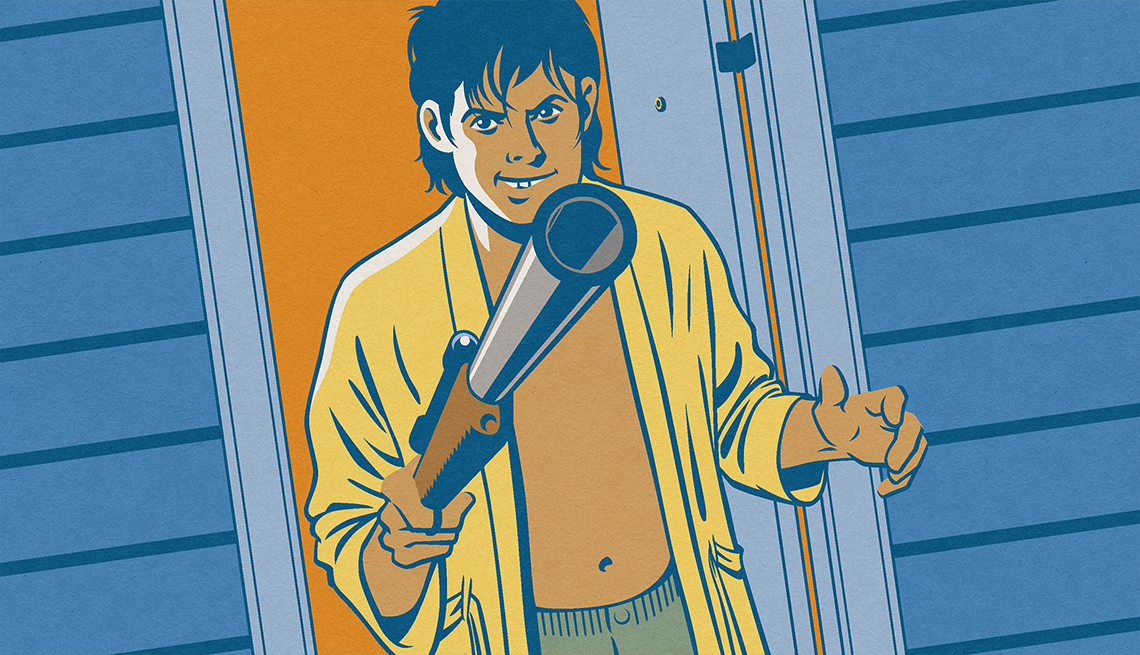
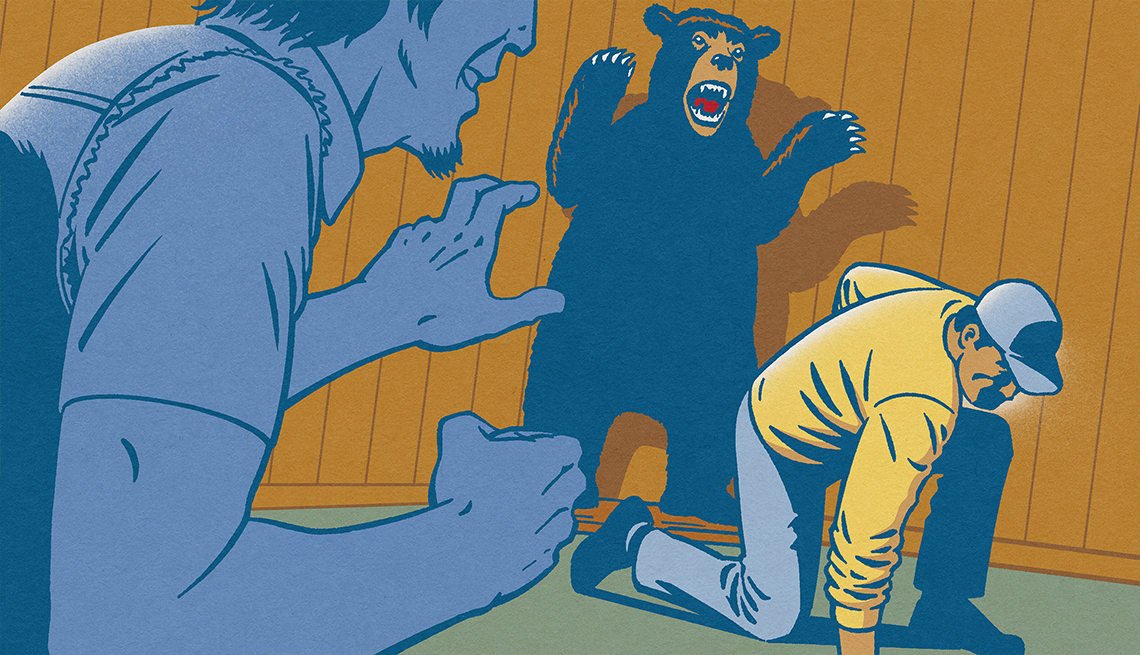
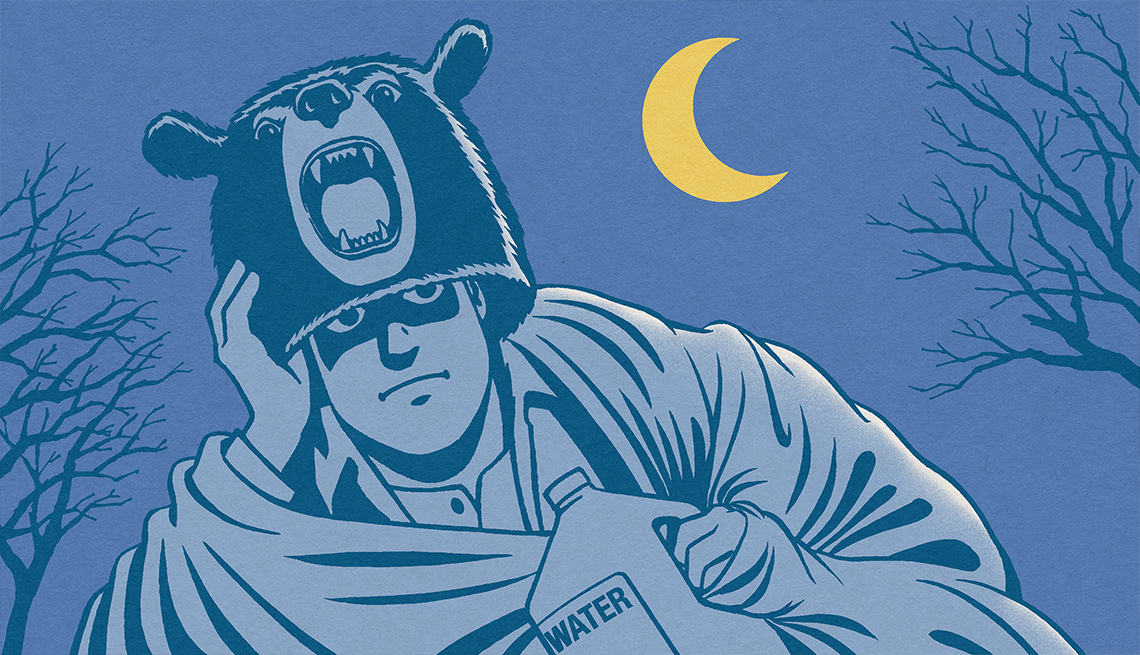
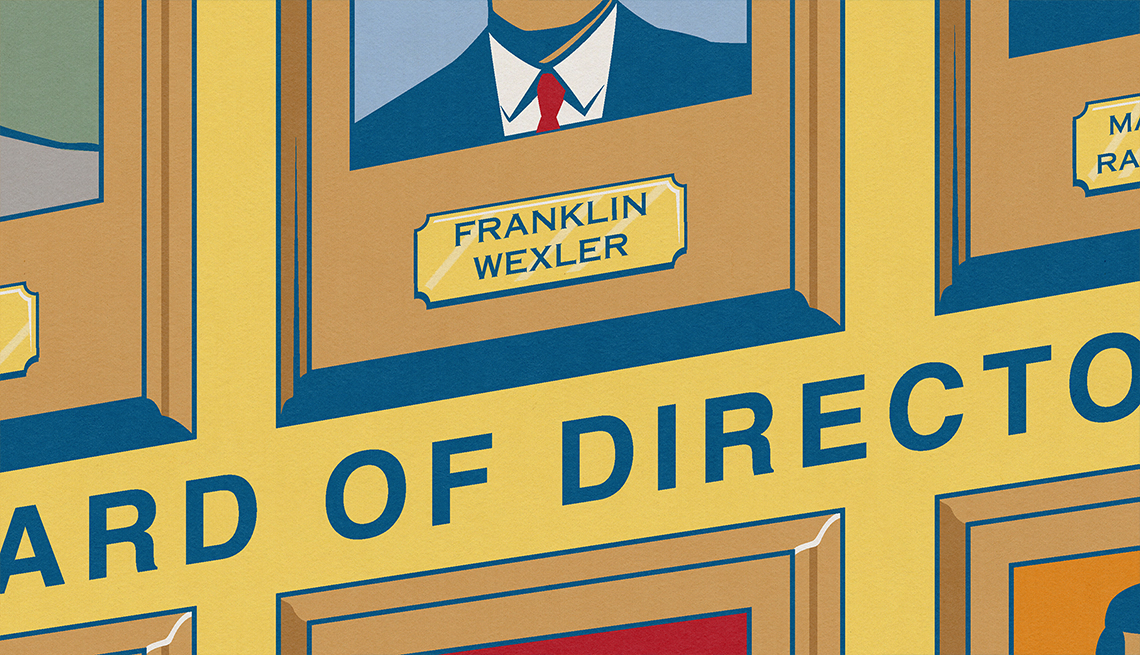
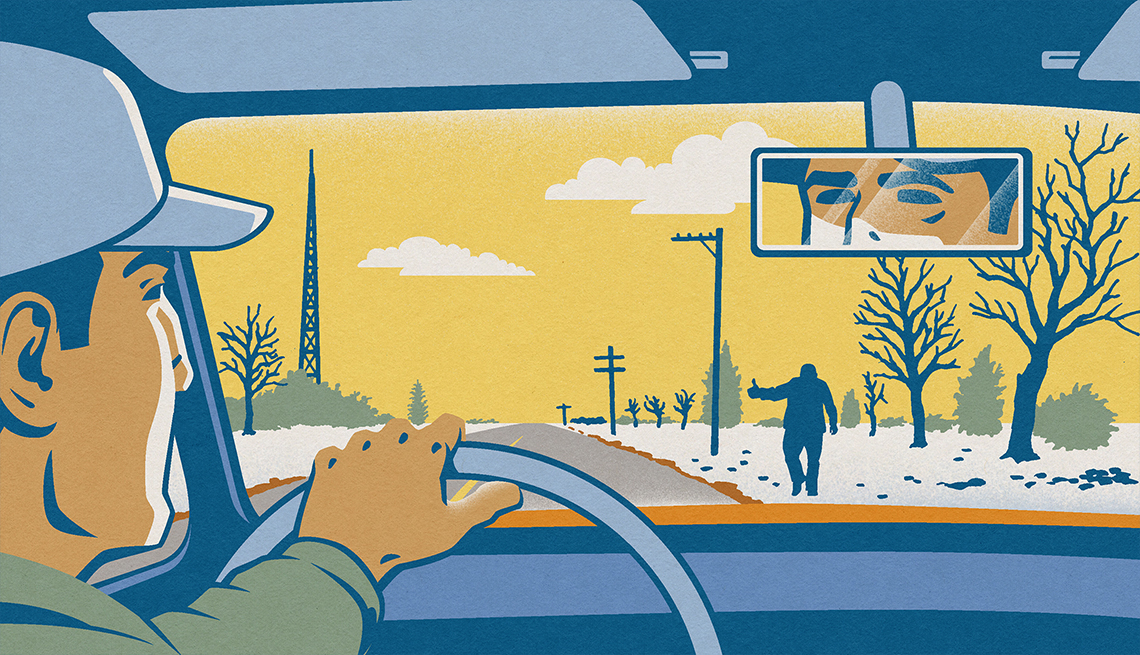
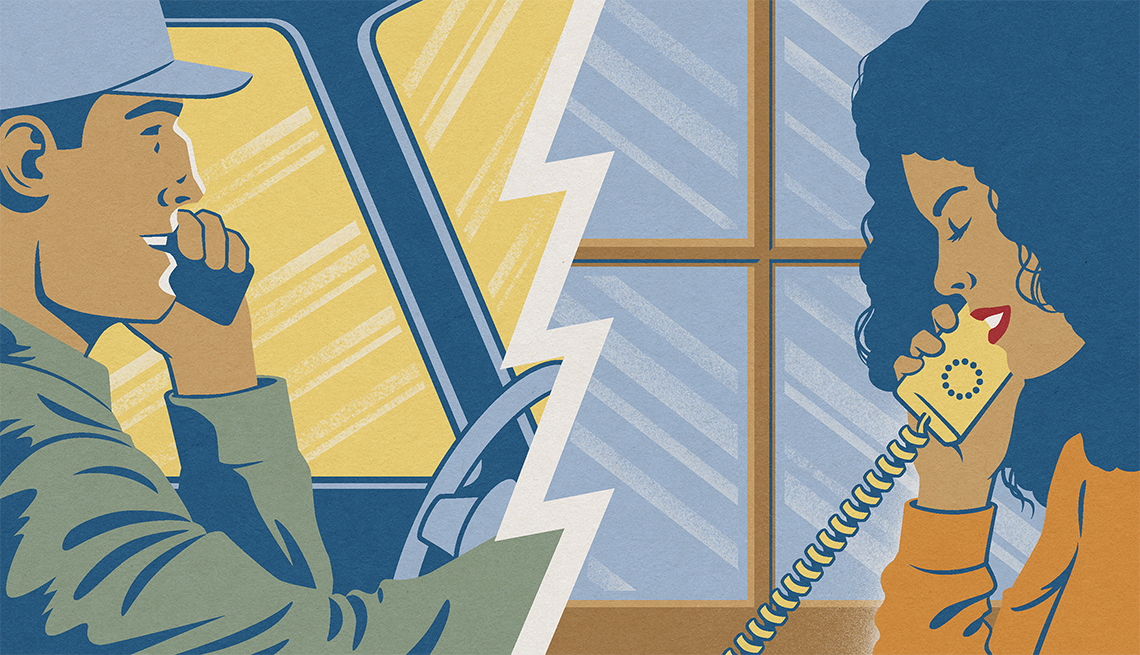
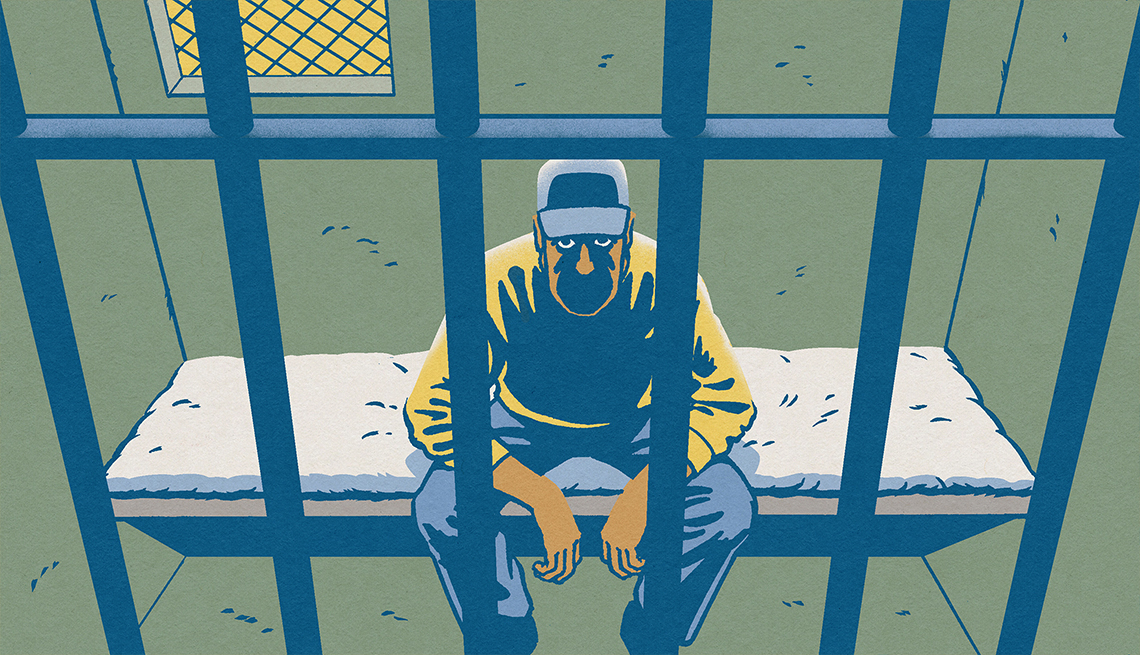







More From AARP
Free Books Online for Your Reading Pleasure
Gripping mysteries and other novels by popular authors available in their entirety for AARP members